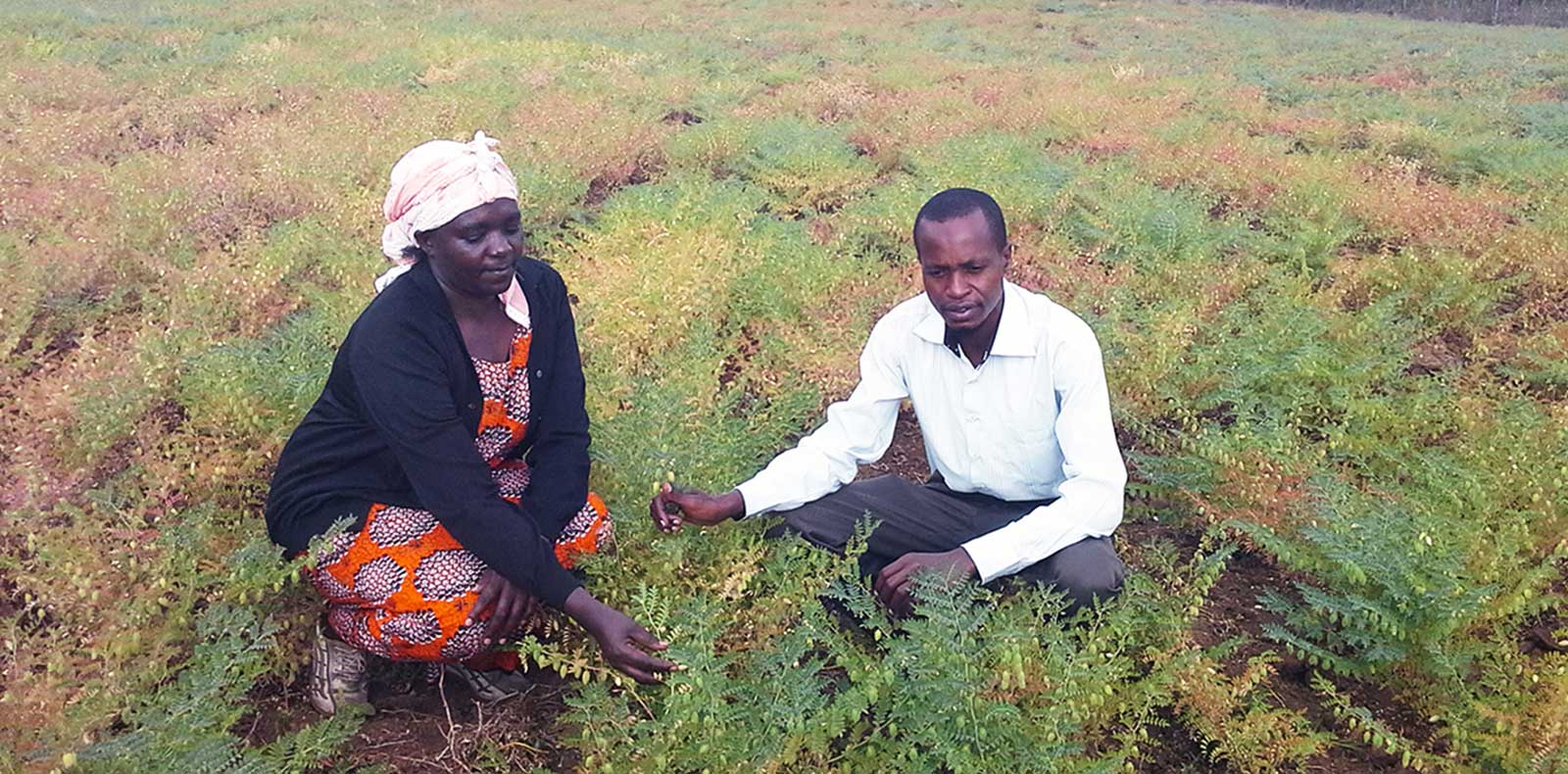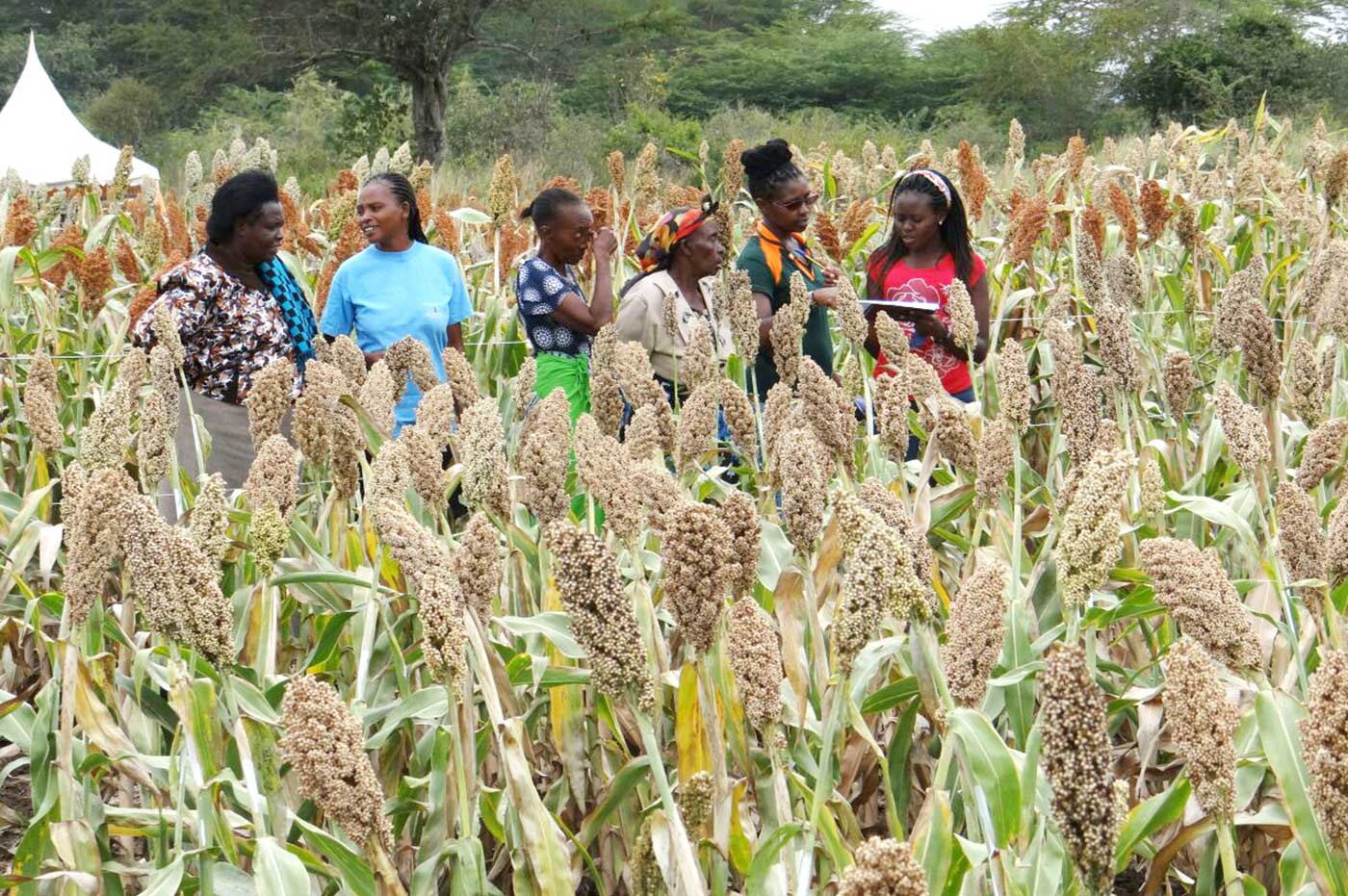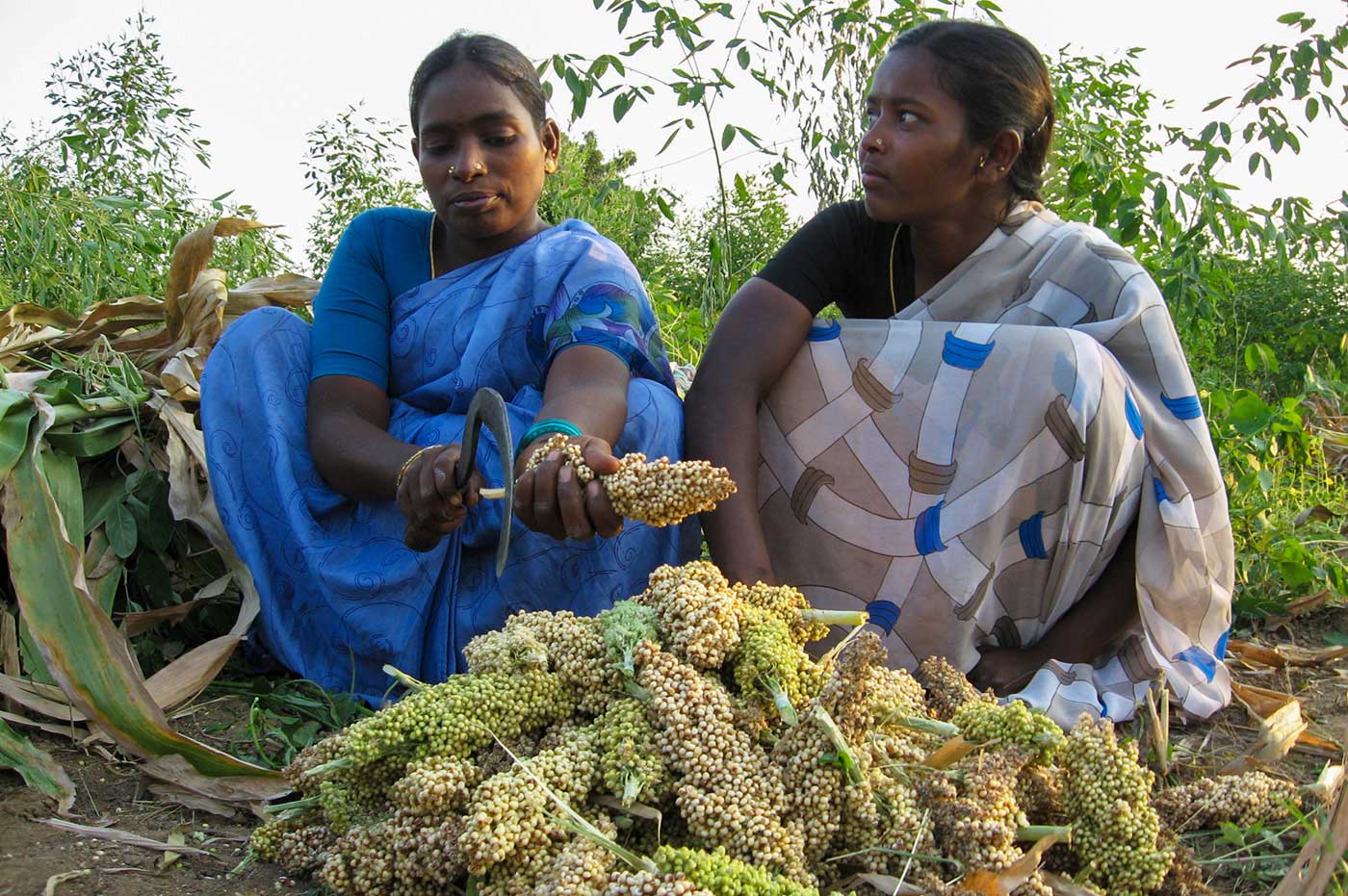We recognize the essential role that gender equality plays in achieving Sustainable Development Goal 5 (SDG 5): Gender Equality
Our commitment to promoting gender equality is deeply ingrained in our work on chickpea, pigeonpea, groundnut, sorghum, pearl millet, finger millet, and other small millets across the drylands of Asia and Africa.
Through our research and development efforts, we actively strive to empower women and promote gender inclusivity in agricultural value chains and rural communities.
Women in Agriculture: ICRISAT acknowledges that women play a significant role in agricultural production and food security. In many dryland regions, women are the primary caregivers and responsible for household food security. Our research and development programs actively focus on enhancing the participation of women in agriculture and ensuring that they have equal access to resources, technology, and knowledge.
Empowering Women Farmers: We actively work to empower women farmers by providing them with access to improved seeds, climate-smart agricultural practices, and training. Through capacity-building programs and farmer field schools, women are equipped with the necessary skills and knowledge to make informed decisions about their farming practices, leading to increased productivity and income.
Promoting Women's Leadership: ICRISAT is committed to promoting women's leadership in agricultural research and development. We actively seek to include more women scientists and researchers in our teams and encourage their involvement in decision-making processes. By nurturing women's leadership potential, we contribute to a more inclusive and gender-balanced research and development agenda.
Gender-Responsive Research: Our research is designed to be gender-responsive, taking into account the distinct roles and needs of men and women in agricultural activities. We conduct gender analysis to understand the specific challenges and opportunities faced by both genders, ensuring that our interventions are tailored to address gender-specific needs and promote equitable outcomes.
Women's Access to Resources: ICRISAT works to improve women's access to critical resources, such as land, credit, and agricultural inputs. We collaborate with stakeholders to advocate for policies that promote land tenure security and women's access to credit and other financial services. By facilitating access to resources, we enable women farmers to fully participate in agricultural activities and enhance their economic well-being.
Gender-Inclusive Value Chains: ICRISAT actively engages with various value chain actors, including traders, processors, and retailers, to promote gender inclusivity. We strive to ensure that women farmers have equal access to market opportunities and are involved in value addition activities. By empowering women throughout the value chain, we contribute to more equitable distribution of benefits from agricultural development.

Africa

In Kenya, about 8,000 women who attended nutrition workshops registered an increase in their dietary diversity score (15% in women and of 80% in children).
Asia

Trained tribal women in Telangana, India, to run licenced units to process and package ready-to-eat millet and pulse foods formulated by ICRISAT, which are supplied to their community centers (anganwadis).